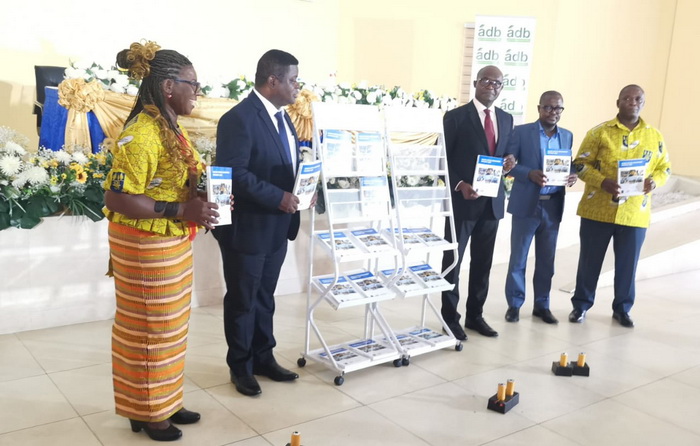The Institute of Statistical, Social and Economic Research (ISSER) states that the government requires more robust policy support to achieve...

The Institute of Statistical, Social and Economic Research (ISSER) states that the government requires more robust policy support to achieve its goals for growth, employment, and economic change by 2026.
The Institute stated that financial goals could be unattainable without more defined expenditure pledges, particularly in the areas of infrastructure and farming.
At a media briefing following the budget announcement, ISSER Director Prof. Robert Darko Osei stated that the global situation provides minimal backing for Ghana's development strategy. He pointed out that global economic growth has been declining since 2022, with an anticipated decrease to 3.1 percent in the coming year.
He stated, 'There isn't a significant increase in the global economy from which we can gain benefits.'
Professor Osei stated that Ghana's rapid decline in inflation rates demonstrates the effect of local policies, noting that the nation has achieved advancement in keeping prices stable. However, he warned that stringent conditions also influence growth.
The government anticipates that the economy will grow by 4.8 percent in 2025, a decrease from the 5.7 percent growth recorded this year, even with robust data from the first half. He raised doubts about whether the predicted slowdown truly represents the real situation on the ground, noting that ISSER has "not observed anything to indicate a significant slowdown."
In 2025, expansion has primarily been driven by the services sector, with information and communication technology as well as financial services leading the way. ISSER anticipates a slight decline in this sector next year, which is expected to maintain overall growth at approximately 4.8 percent.
Professor Osei cautioned that this speed will not be sufficient to decrease poverty or achieve the anticipated improvements in well-being. "We definitely need to boost the growth rate if we are to reach our goals," he stated.
On the financial side, Ghana achieved a notable enhancement as the deficit decreased to 2.8 percent of GDP. However, these improvements were due to reduced spending instead of increased income.
Professor Osei mentioned that budget reductions were mainly focused on capital spending, which dropped significantly below goals, reaching an estimated 1.7 percent of GDP. He called the situation concerning, pointing out that investment in infrastructure is crucial for productivity and sustained development. He further stated that even the 2026 forecast of 2.9 percent is still "far less than what we require."
ISSER highlighted the lack of defined financial provisions for the government's proposed 'Big Push' infrastructure initiative, such as the Accra–Kumasi highway.
Professor Osei stated that intentions should be mirrored in financial arrangements. "If it is the term that will promote infrastructure growth, then this intention must be evident in your direction," he mentioned.
Financial metrics have shown improvement due to reduced interest rates, which have helped alleviate inflation and boost reserves. Private sector borrowing has increased, although ISSER noted that high levels of non-performing loans continue to restrict lending. "One in five of us will seek loans, so we are all contributing to the issue," said Prof. Osei, calling for additional reforms to reduce NPLs.
The institution also highlighted ongoing structural challenges in the agricultural sector. Although the industry experienced significant growth in crops, cocoa, livestock, and fisheries, inadequate processing, marketing deficiencies, and insufficient investment in value chains continue to hinder the sector's broader influence.
Professor Osei mentioned that efforts like increased investment in oil palm should focus on the full value chain, not just the production aspect.
He mentioned that changes within the cocoa industry are beneficial, yet persistent worries regarding its cost framework and environmental viability still exist. Matters concerning regional trade policies, illegal trafficking, and currency fluctuations also present obstacles to employment and market competitiveness.
"Productivity-increasing investments must take place," said Prof. Osei, noting that without stronger actions, the budget's goals for growth, employment, and transformation will be challenging to achieve.
Provided by SyndiGate Media Inc. (Syndigate.info).


